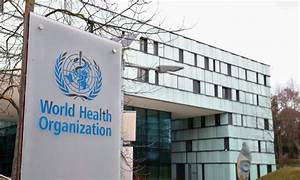After more than three years of negotiations, on Wednesday the member states of the World Health Organization approved a historic agreement aimed at better preparing for and combating future pandemics.
“WHO member states have made an important step forward in efforts to make the world safer from pandemics by drafting an agreement to be considered at the upcoming World Health Assembly in May,” the WHO said in a statement. The countries reached an agreement after one final day and one night of negotiations. “We reached the agreement at 1:58 in the morning,” a delegate told AFP, as the WHO was preparing the champagne.
“Today, nations of the world made history in Geneva,” said WHO Director-General Tedros Adhanom Ghebreyesus. “By reaching a consensus on the pandemic accord, not only have you established a generational agreement to make the world safer, but you have also shown that multilateralism is alive and well and that in our divided world nations can still work together to find common ground and a shared response to common threats,” he added. However, on Tuesday after a three-day pause, the delegates’ discussions proceeded more slowly than expected.
The WHO Headquarters in Geneva
(Image: The WHO headquarters in Geneva – 16/04/2025)
The discussion mainly focused on Article 11, which deals with the transfer of technologies for the production of pandemic-related health products, in particular to benefit developing countries. This issue had been at the center of many complaints from poorer countries during the Covid-19 pandemic, when rich countries stockpiled vaccine doses and other tests. Several countries where the pharmaceutical industry is an important economic actor opposed the idea of mandatory transfers and insisted on their voluntary nature. In the end, a consensus emerged on the principle of “mutually agreed” technology transfer. The agreement also provides for the creation of a “Pathogen Access and Benefit Sharing System” (PABS), which allows the rapid sharing of data on emerging pathogens with pharmaceutical companies, thus accelerating the development of vaccines and tests. It also proposes to expand access to these products by creating a global logistics network and supply chain.
French Ambassador at the WHO, Anne Claire Amprou
(Image: French Ambassador at the WHO Anne Claire Amprou – 16/04/2025)
“This is a historic agreement for health security, equity, and international solidarity,” said Anne-Claire Amprou, co-chair of the negotiating body and the French ambassador for global health. WHO Director-General Tedros joined the negotiators on Tuesday evening and took the opportunity to address the press. For him, the text is “balanced” and brings “greater equity.” And above all, he warned against losing sight of the essential: “The cost of inaction is much higher” because “the virus is the worst enemy and could be worse than a war.” The accord also calls on countries to strengthen their prevention and surveillance capacities, with national plans that include vaccination, management of biological risks, and combating antibiotic resistance. On Saturday, after five days—including 24 hours of uninterrupted talks—Ms. Amprou announced “a principle agreement,” pending the final agreement from the capitals. Yesterday’s session was intended to “clean up” the text one last time. Five years after the arrival of Covid-19, with its millions of deaths and a devastated global economy, the accord should allow the world to better prepare by defining everything needed to face another pandemic.
The negotiations took place against the backdrop of a crisis in multilateralism and the global health system, triggered by drastic cuts to international aid by the United States decided by President Donald Trump, even though the United States remains by far the largest humanitarian donor. They were also absent from the talks, as the American president had decided that they would leave the organization. However, the presence of the United States is felt in the corridors of the WHO, with the threat of American tariffs on pharmaceutical products. For NGOs, it was time to cement the agreement. “Although it has been subject to numerous compromises, it contains many positive elements that allow us to set a new framework for a more equitable and just preparedness and response to future pandemics,” commented Médecins Sans Frontières.
The agreement has been reached. The final vote will take place in May during the General Assembly, which will begin on the 19th.

